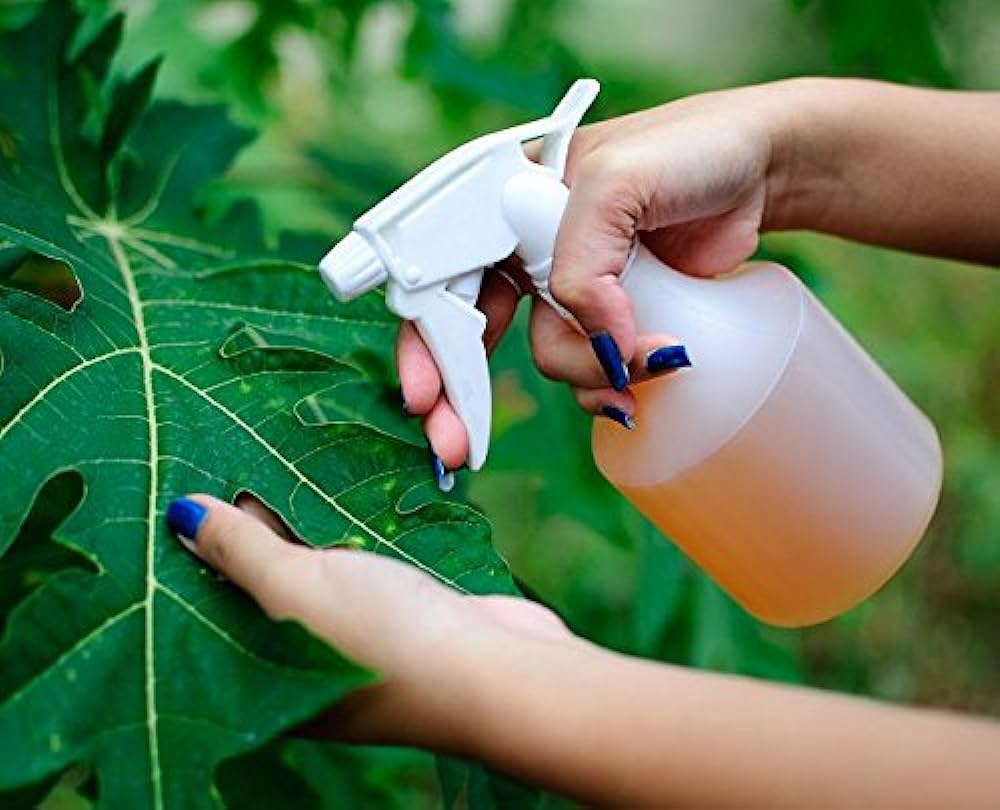With the growing awareness about the importance of organic gardening, it’s crucial to find eco-friendly solutions to common garden problems. Homemade organic pesticides are not only cost-effective but also safe for the environment. This article is designed to guide Indian gardeners on how to make their own organic pesticides right at home. Let’s dive in.
Why Choose Organic Pesticides?
Organic pesticides are safer for both your garden and the environment. They are free from harmful chemicals and are often made from easily available household ingredients.
Basic Ingredients
Here are some common ingredients you can use to make organic pesticides at home:
Neem Oil: Effective against a broad spectrum of insects.
Garlic: Acts as a repellent and insecticide.
Chilli Powder: Discourages pests due to its spicy content.
Soap: Helps the mixture stick to plant surfaces.
Best Organic Pesticide Recipes
Best Homemade Organic Pesticides for Garden Plants
Neem Oil Spray
Ingredients:
- 2 tablespoons neem oil
- 1 tablespoon liquid soap
- 1 litre water
Method:
- Mix the neem oil and liquid soap in water.
- Stir well and transfer to a spray bottle.
Garlic and Chilli Spray
Ingredients:
- 5 cloves of garlic
- 1 tablespoon chilli powder
- 1 litre water
Method:
- Crush the garlic and mix with chilli powder.
- Add water and let the mixture sit for a day.
- Strain and transfer to a spray bottle.
Baking Soda and Oil Spray
Ingredients:
- 1 tablespoon baking soda
- 1 tablespoon vegetable oil
- 1 litre water
Method:
- Mix baking soda and vegetable oil in water.
- Transfer the mixture to a spray bottle.
Best For: Fungal diseases like mildew
Epsom Salt Spray
Ingredients:
- 2 tablespoons Epsom salt
- 1 litre water
Method:
- Dissolve the Epsom salt in water.
- Fill a spray bottle with the solution.
Onion and Garlic Spray
Ingredients:
- 1 onion
- 5 cloves of garlic
- 1 litre water
Method:
- Blend onion and garlic into a paste.
- Mix the paste with water and let it sit overnight.
- Strain and fill a spray bottle with the liquid.
Tobacco Spray
Ingredients:
- 1 cup tobacco leaves
- 1 litre water
Method:
- Soak the tobacco leaves in water for 24 hours.
- Strain the liquid and transfer it to a spray bottle.
How to Apply Organic Pesticides
Test First: Always test the spray on a small portion of the plant and wait 24 hours.
Apply Evenly: Make sure to cover both the top and bottom of the leaves.
Reapply: Organic pesticides often need to be reapplied more frequently.
These recipes offer a wide array of solutions for common gardening problems faced by Indian gardeners, all while keeping it organic and eco-friendly. Choose the one that best suits your gardening needs and make sure to always conduct a patch test before full application.
Creating your own homemade organic pesticides is an effective, eco-friendly approach to garden care. Using simple household ingredients, Indian gardeners can tackle common garden pests without harming the environment.
FAQs on Making Organic Pesticides at Home for Garden Plants
1. Are homemade organic pesticides as effective as chemical pesticides?
Homemade organic pesticides may not work as quickly as chemical ones, but they are safer for the environment and non-toxic. Consistent and proper application enhances their efficacy.
2. How often should I apply homemade organic pesticides?
Organic pesticides generally need to be applied more frequently than their chemical counterparts. Depending on the severity of the pest problem, you may need to apply it once a week or even more often.
3. Can I store leftover organic pesticide mixtures?
Storing homemade organic pesticides is generally not recommended as their potency can decrease over time. It’s best to prepare small batches and use them immediately.
4. Are these organic pesticide recipes safe for all plants?
It’s advisable to conduct a patch test before applying any new organic pesticide on your plants. Apply the mixture to a small area and observe for any adverse reactions for 24 hours.
5. Can homemade organic pesticides harm beneficial insects?
While organic pesticides are generally safer, they can still affect beneficial insects like bees and ladybugs. Try to apply the spray during times when these insects are less active.
Happy Gardening!


